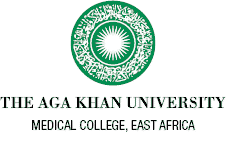Ovulation induction
Women who do not ovulate regularly have a greatly increased chances of conceiving when given specific medications to promote ovulation. We ensure this is done with very minimal risks to the individual woman and her pregnancy by adhering to international best practice.
Intrauterine insemination
In specific circumstances such as reduced sperm quality or unexplained subfertility, insemination with a partner’s or donor sperm is done to achieve a pregnancy.
Assisted reproductive treatment
Technological advancement in assisted reproduction has assured couples who had no chance of a natural pregnancy to become parents. Specialist fertility consultants are available at Aga Khan University to help such couples go through this journey. Various techniques are to hand and your specialist will advise appropriately.
-
IVF (in vitro fertilization): This involves fertilizing a woman’s eggs with a man’s sperm to create embryos in an incubator. Subsequent development of the embryos allows selection of the most viable for return in a woman’s womb. She is then given hormones to support the pregnancy until it is self-sustaining when confirmed to be viable by an ultra sound scan.
-
ICSI (intra-cytoplasmic sperm injection): Where the sperm is of such reduced quality that normal fertilization is not guaranteed, directly injecting the woman’s eggs with sperm overcomes this hurdle. Our IVF laboratory has well trainedscientists for this delicate technique.
-
Frozen embryo replacement: Not all embryos created during in vitro fertilization as put back in the womb. To minimize the risk of multiple pregnancy , spare embryos are stored using a specialized technique and are available to use at a later date when the couple are ready.
-
Fertility preservation in women at risk of premature menopause (such as those having cancer treatment). Female fertility is dependent on a finite number of eggs in the ovaries. Treatments such as cancer medications can drastically reduce this eggs prematurely rendering a woman infertile and prematurely menopausal. We have a well-coordinated programme ensuring women who receive the unfortunate diagnosis of cancer undergo fertility consultation and treatment for preservation in a timely fashion. Oocytes or embryos created and kept in storage may be used later in future once the woman has completed her cancer treatment and been given the all clear to try a pregnancy. Completing a family is the joyous moment for these individuals.
Early pregnancy assessment
A majority of pregnancies progress well to full term, however, some women may experience problems. During early pregnancy, women may have pain or vaginal bleeding that could cause a lot of anxiety. Rarely this signifies a medical concern and it may not be clear where the woman needs to be assessed. A dedicated early pregnancy assessment service is available at Aga Khan offering a one-stop shop that provides professional advice in a very sensitive manner during this difficult moment. You will have access to ultrasound scanning and blood tests and personalized care from a team of well-trained professionals until. You may be referred by your GP or simply call thegynaecology service on +254 (0)737801631.
Investigations and treatment of repeated pregnancy loss (miscarriage)
Losing a pregnancy through a miscarriage may occur to about 1 in 5 women conceiving. This tends to be sporadic with 97 in 100 women going on to have a normal pregnancy after the miscarriage without needing to do anything specific. In about 3 in 100 women, 2 or more miscarriages may happen either consecutively or not. Specialist advice is recommended for these women as it is quite a stressful experience for them. Whereas, a majority will go on to have a normal pregnancy, specialised tests are available that can guide specific treatment when found abnormal. Aga Khan University has set up a team of dedicated and specialized professionals to offer you this sensitive service. We ensure that a comprehensive plan is made to look after you for your next pregnancy.
Hormonal treatment
The ovaries play a very integral role in female reproduction and development. The biological clock is genetically set and switches on at puberty and stops at the menopause. Female hormones ensure bone and heart health are maintained and a deficiency is manifest through menopause symptoms such as hot flushes. Where there is inadequate production of female hormones in young women or exhaustion during the menopause, replacement in a much-tailored fashion to restore health and wellness is recommended. Specialist hormone replacement service is available at Aga Khan University Hospital for women who feel the need.
This is given in a bespoke manner in various health situations such as the following -
- Premenopausal such as delayed pubertal development, Premature menopause (under 40 years of age)
- Menopausal women


